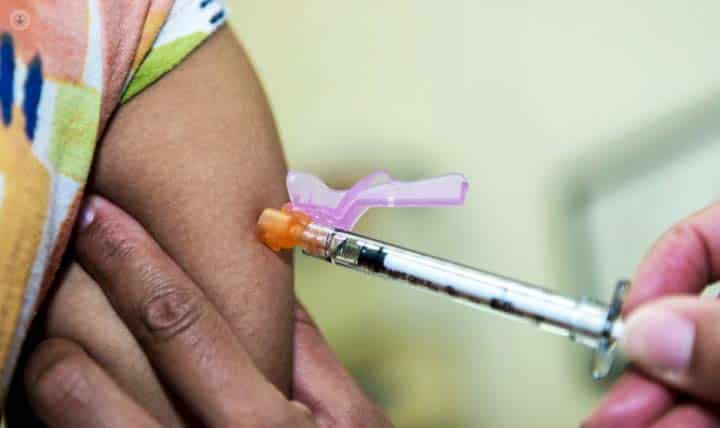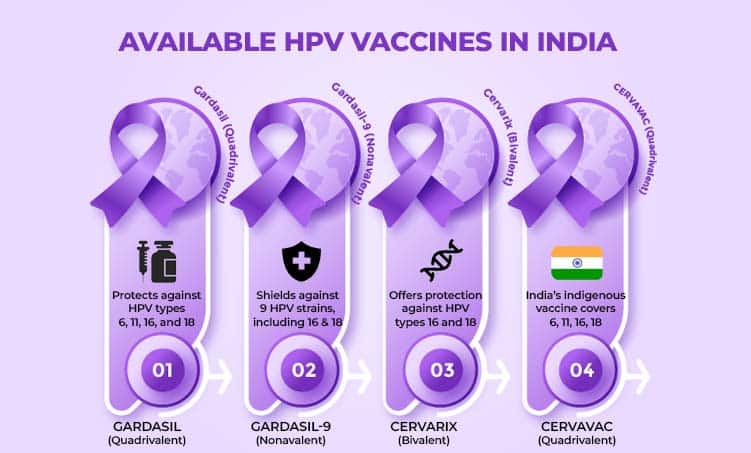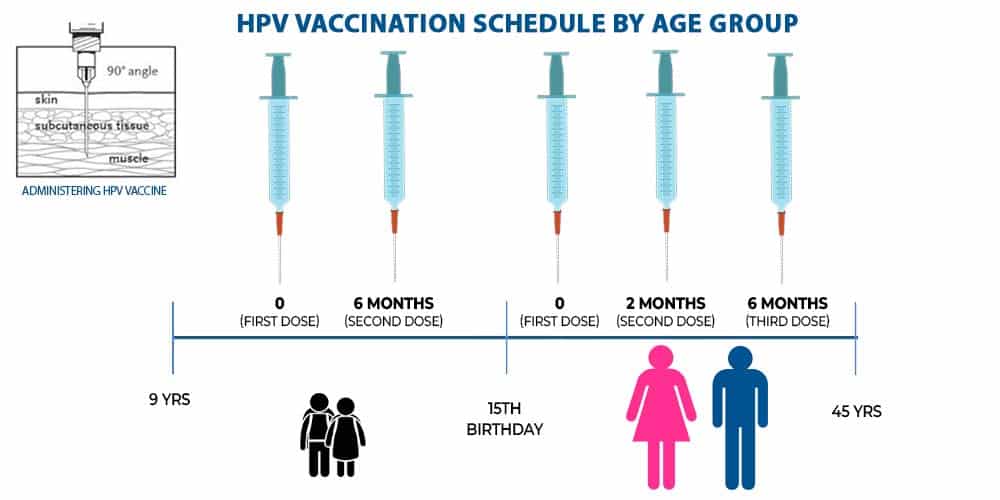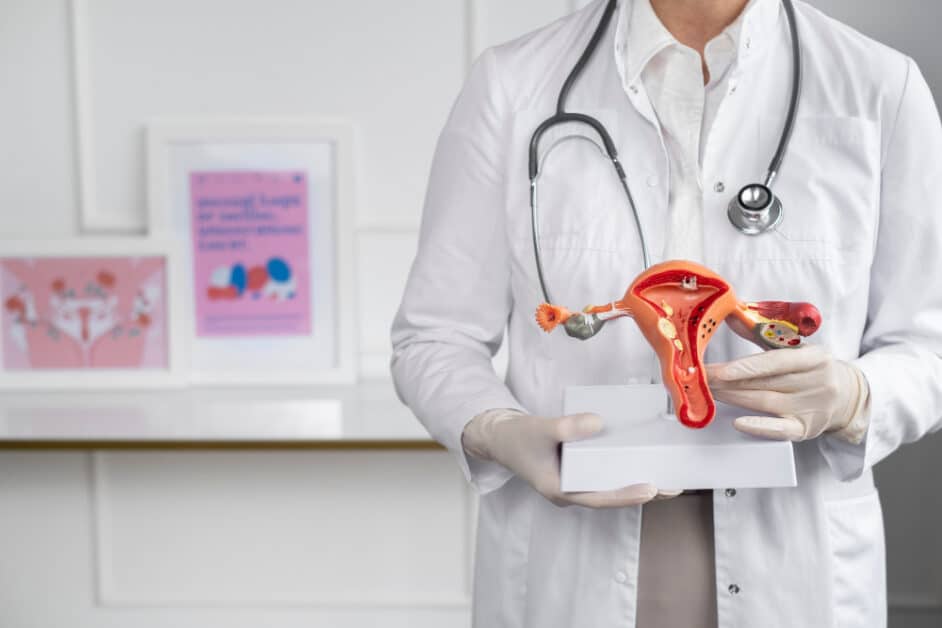Cervical Screening After Vaccination: Why It Still Matters
Every week in my clinic, I meet women who ask me the same question: “If I have taken the HPV vaccine, do I still need cervical screening after vaccination?” Their sense of security is understandable, yet the answer is always yes. The HPV vaccine offers strong protection against cervical cancer, yet it cannot guard against all high-risk strains.
Cervical screening guidelines remain clear—Pap smears and HPV tests are essential for both vaccinated and unvaccinated women.
As a gynaecologist, I have witnessed how early detection through cervical cancer screening saves lives. The HPV vaccine and Pap smear work together, each strengthening the other. Recent updates, including new HPV guidelines, highlight that vaccination is prevention, not replacement.
In this article, I will explain why vaccinated women still need screening, how often to test, and what HPV test after vaccination means for lifelong protection and peace of mind.
Also Read:
- Cervical Cancer Screening: What Test is Right for You?
- Cervical Cancer & HPV Vaccine: What Every Woman Must Know
Why Screening Is Essential After Vaccination
The HPV vaccine protects against high-risk HPV types 16 and 18, which cause about 70 percent of cervical cancers. But it does not cover all cancer-causing strains. That leaves nearly 30 percent of risk uncovered, which can only be addressed through regular cervical cancer screening.
Cervical screening guidelines emphasise that:
- Pap smears and HPV DNA tests identify abnormal cervical cells before they progress into cancer.
- Screening helps uncover HPV infections that the vaccine does not protect against.
- Detecting changes early allows treatment to be easier, safer, and more effective.
Takeaway: Vaccination lowers risk. Screening ensures no gaps remain.
What the HPV Vaccine Does – and Does Not Do
In my practice, I often see women relieved after vaccination yet unaware of its limits. The HPV vaccine prevents most high-risk infections, but it does not replace cervical screening. Regular Pap smears and HPV testing remain crucial for lifelong protection.
What it does
- Provides strong protection against most high-risk HPV infections.
- Reduces abnormal Pap smear results over time.
- Prevents genital warts in certain vaccine types.
What it does not do
- Cover all cancer-causing HPV strains.
- Treat pre-existing HPV infections.
- Eliminate the need for cervical screening.
Even fully vaccinated women can be infected with high-risk HPV strains not included in the vaccine. Skipping screening would remove a vital safeguard.
Cervical Screening Guidelines: How Often Should You Test?
Many women assume that HPV vaccination changes when or how often they need screening, but that is not true. Cervical screening guidelines remain the same for vaccinated and unvaccinated women. Frequency depends on age, test type, and medical history, ensuring complete and continued protection.
Ages 21–29
- Pap smear every 3 years (whether vaccinated or not).
Ages 30–65
- Pap smear every 3 years, or
- HPV DNA testing every 5 years, or
- Combined testing with Pap smear and HPV DNA every 5 years.
Over 65 years
- Screening may stop if results have been consistently normal for the past 10 years, but this decision must be made with your doctor.
Key point: Vaccination does not change this schedule. Screening remains essential across these age groups.
The Value of Early Detection
Cervical cancer usually progresses gradually, beginning with early precancerous changes in the cervical cells. Detecting these changes early means:
- Treatment is simpler and less invasive.
- Chances of full recovery are higher.
- Fertility can be preserved.
Women who skip screening after HPV vaccination risk missing early warning signs, falsely believing they are fully protected.
Myths About HPV Vaccination and Screening
Over the years, I have heard many myths from women who believe vaccination alone makes them safe. Misconceptions like “no Pap smear needed” or “screening is a waste” persist. Dispelling these myths is essential to support informed decisions and effective cervical cancer prevention.
Myth 1: I cannot get cervical cancer because I am vaccinated.
Fact: The vaccine lowers your risk but does not eliminate it.
Myth 2: HPV vaccination makes Pap smears unnecessary.
Fact: Screening remains essential because not all HPV types are covered.
Myth 3: Vaccination plus screening is unnecessary.
Fact: Prevention and screening together offer the strongest protection.
Understanding these myths helps women make informed choices and avoid a false sense of security. Once the confusion is cleared, it becomes easier to see that cervical screening is not only about preventing cancer but also supports broader aspects of women’s health.
 Cervical Screening Beyond Cancer Prevention
Cervical Screening Beyond Cancer Prevention
Cervical screening also detects other conditions:
- Vaginal infections
- Inflammatory changes
- Certain non-HPV-related precancerous conditions
Appointments are also an opportunity to discuss menstrual health, fertility, menopause, and sexual wellbeing with your doctor.
What If I Have an Abnormal Screening Result?
There is no need to despair. An abnormal Pap smear result does not always indicate cancer; it often points to minor cellular changes requiring further evaluation. It signals changes that need further investigation.
Follow-up may include:
- HPV typing to identify the strain.
- Colposcopy for closer examination of the cervix.
- Biopsy if needed for confirmation.
Most abnormalities are treatable if detected early. Timely follow-up is essential.
Updated HPV Guidelines: What Women Should Know
New HPV guidelines recommend integrating vaccination with lifetime screening. Even with single-dose schedules now being studied for young girls, cervical cancer prevention still relies on two strategies working together:
- HPV vaccination for primary prevention.
- Cervical cancer screening for secondary prevention.
Global and Indian health authorities emphasise that vaccinated women should not delay or skip screening.
FAQ’s: Cervical screening after vaccination
Q: At what age should I begin cervical screening if I am vaccinated?
A: Start Pap smears from age 21, regardless of vaccination. From 30 onwards, HPV DNA testing or co-testing may be used.
Q: How often should I get screened after vaccination?
A: Pap smear once every 3 years. Or HPV DNA testing or co-testing every 5 years, following cervical screening guidelines.
Q: What is the difference between a Pap smear and HPV DNA test?
A: Pap smear checks cervical cells for changes. HPV DNA test looks for the virus itself. Co-testing combines both for greater accuracy.
Q: Can cervical screening detect other conditions besides cancer?
A: Yes. Screening may reveal infections, inflammation, and certain precancerous changes unrelated to HPV.
Also Read:
Vaccination and Screening Work Together
Receiving the HPV vaccine is a strong step toward preventing cervical cancer, but it does not complete the protection journey. Cervical screening after vaccination remains essential for every woman. By following cervical screening guidelines, women can catch early changes, protect fertility, and ensure better health outcomes.
Prevention works best as a partnership: vaccination reduces risk, and screening provides early warning. Together, they offer the strongest shield against cervical cancer.
Our Digital Imprints:
Dr. Madhu Goel
Senior Consultant Obstetrician and Gynaecologist
Director, Fortis La Femme
I am passionate about women’s health. With expertise in managing high-risk pregnancies, infertility, and various gynaecological issues, I strive to provide compassionate care. I am committed to ensuring the well-being of my patients. Follow me for insights and updates on women’s health.
Get Connected to my Newsletter
“Health Hub”: Women’s Health & Wellness
Connect with me: Instagram | Facebook | LinkedIn







